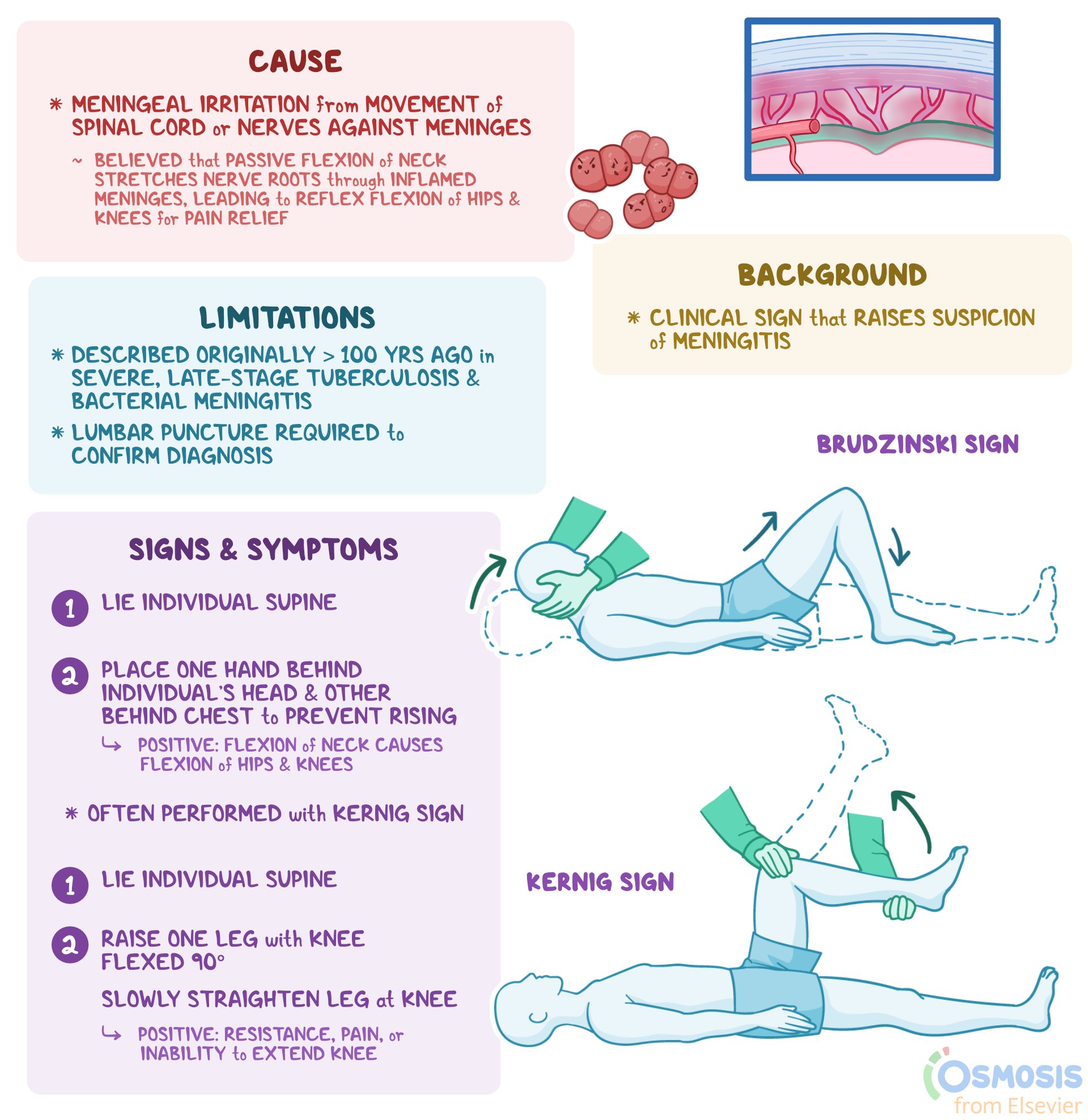Meningeal irritation/meningitis
Meningeal irritation, also known as meningeal signs, refers to a group of physical signs and symptoms that may suggest inflammation or irritation of the meninges, which are the protective membranes surrounding the brain and spinal cord. Meningeal irritation can be caused by various conditions, including infections (such as meningitis), bleeding in the brain, or other neurological disorders. These signs are often assessed by a healthcare provider during a physical examination. Some common physical signs of meningeal irritation include:
Neck Stiffness (Nuchal Rigidity): One of the hallmark signs of meningeal irritation is a stiff neck. A person may have difficulty bending their neck forward (touching their chin to their chest) due to pain and resistance.
Kernig's Sign: Kernig's sign is a specific test for meningeal irritation. It involves lying the patient on their back and flexing their hip and knee at a 90-degree angle. If there is resistance and pain when attempting to extend the knee, this can be a sign of meningeal irritation.
Brudzinski's Sign: Brudzinski's sign is another specific test for meningeal irritation. It involves gently flexing the patient's neck forward. If this maneuver causes involuntary flexion of the patient's hips and knees, it's considered a positive Brudzinski's sign.
Headache: A severe headache, often described as a pounding or throbbing pain, is a common symptom of meningeal irritation. The headache may be worsened by movement or changes in position.
Photophobia: Sensitivity to light is another symptom often seen in individuals with meningeal irritation. Even normal indoor lighting or sunlight can be painful to the eyes.
Phonophobia: This refers to sensitivity to sound. People with meningeal irritation may find even normal sounds to be uncomfortable or painful.
Fever: Meningeal irritation is often associated with an underlying infection, so fever may be present, especially in cases of viral or bacterial meningitis.
Nausea and Vomiting: Nausea and vomiting are common symptoms, likely due to the intense headache and overall illness associated with meningeal irritation.
Altered Mental State: In severe cases, individuals may experience confusion, disorientation, or altered consciousness.
Seizures: In some cases, seizures may occur as a result of the underlying cause of meningeal irritation.
It's important to note that these signs can vary in intensity and presentation depending on the underlying cause and the individual.


Comments
Post a Comment